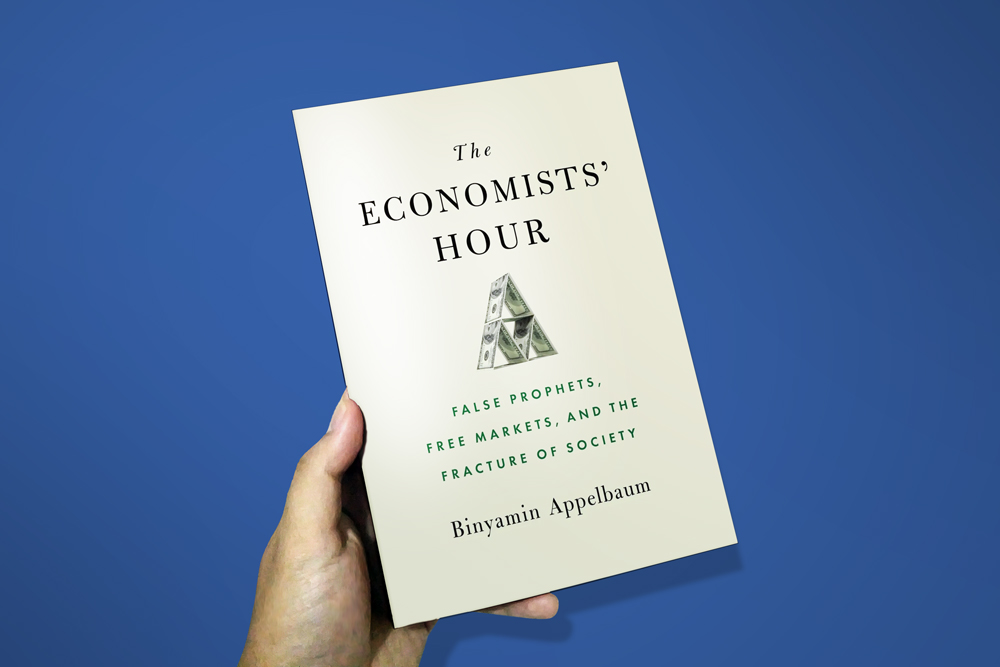The Economists’ Hour: A Deep Dive into the Influence of Economists on Policy Making by Binyamin Appelbaum
“The Economists’ Hour” by Binyamin Appelbaum is a compelling exploration of the profound influence economists have had on policy-making, shaping the world as we know it. In this insightful book, Appelbaum invites readers to delve into the world of economists, their theories, and their impact on society. As we embark on this journey, we will explore the rise of economists in policy-making, their role in promoting free-market ideology, and the consequences of their influence. Through Appelbaum’s meticulous research and engaging prose, “The Economists’ Hour” promises to expand our understanding of economics and its role in shaping public policy.
Author Background:
Binyamin Appelbaum is a distinguished journalist and a member of The New York Times editorial board. He has a deep understanding of economics and its implications on society. His work focuses on the intersection of economics and public policy, making it accessible and engaging to a diverse audience. Appelbaum’s expertise in economics and his ability to distill complex concepts into understandable narratives have earned him recognition as a leading authority in the field.
In-Depth Summary:
“The Economists’ Hour” is a captivating exploration of the rise of economists in policy-making and their influence on the world. Binyamin Appelbaum takes readers on a journey through the world of economics, revealing the profound impact economists have had on society.
The book begins by introducing readers to the rise of economists in policy-making, highlighting their growing influence since the mid-20th century. Appelbaum explains how economists, armed with their faith in free markets, began to shape public policy, advocating for deregulation, lower taxes, and free trade.
Central to Appelbaum’s narrative is the concept of the “Economists’ Hour” – a period from the 1960s to the 2008 financial crisis when economists gained significant influence in policy-making. During this time, economists’ faith in free markets became the dominant ideology, shaping policies from Washington D.C. to Santiago.
The book delves into the consequences of economists’ influence, examining the impact of their policies on income inequality, financial instability, and economic growth. Appelbaum argues that while economists’ policies have led to significant economic growth, they have also contributed to a rise in income inequality and financial crises.
Furthermore, “The Economists’ Hour” explores the aftermath of the 2008 financial crisis, a turning point in economists’ influence. Appelbaum discusses the growing disillusionment with free-market ideology following the crisis and the subsequent shift towards more interventionist policies.
In conclusion, “The Economists’ Hour” is not just a book about economists; it is a critique of their influence and a call for a more balanced approach to policy-making. Through Appelbaum’s insightful analysis and engaging narrative, readers are invited to rethink the role of economists in society.
Analysis:
In “The Economists’ Hour,” Appelbaum seamlessly weaves together historical analysis, personal anecdotes, and economic theory to paint a vivid picture of economists’ influence on policy-making. His narrative is both informative and thought-provoking, challenging readers to reconsider their perceptions of economics and its impact on society. By exploring topics such as free-market ideology, income inequality, and financial crises, Appelbaum offers a comprehensive overview of the “Economists’ Hour” and its consequences.
Themes and Insights:
“The Economists’ Hour” delves into a myriad of themes, including power, influence, and the consequences of unchecked faith in free markets. Appelbaum illuminates the intricate relationships between economists and policy-makers, showcasing the profound impact of their policies on society. Through his exploration of the “Economists’ Hour” and its aftermath, Appelbaum challenges readers to reconsider the role of economists in policy-making and the need for a more balanced approach.
Writing Style:
Appelbaum’s writing style is both engaging and accessible, drawing readers into the world of economists with vivid descriptions and engaging anecdotes. His passion for the subject shines through in every chapter, making complex economic concepts relatable and engaging for readers of all backgrounds. By seamlessly blending historical analysis with economic theory, Appelbaum creates a compelling narrative that inspires critical thinking and debate.
Recommendation:
“The Economists’ Hour” is recommended for anyone curious about the influence of economists on policy-making and its implications for society. This book will appeal to economists, policy-makers, and anyone interested in understanding the intersection of economics and public policy. Additionally, “The Economists’ Hour” offers valuable insights for those interested in the history of economic thought and its impact on the world.
Conclusion:
“The Economists’ Hour” by Binyamin Appelbaum is a captivating exploration of the rise of economists in policy-making and their profound influence on society. With its blend of historical analysis, economic theory, and engaging narrative, this book offers a holistic perspective on the “Economists’ Hour” and its consequences. Whether you’re an economist, a policy-maker, or a curious reader, “The Economists’ Hour” will inspire critical thinking and debate about the role of economists in society.
